
Ciencias Agronomicas
Scope & Guideline
Transforming agricultural challenges into sustainable solutions.
Introduction
Aims and Scopes
- Sustainable Agricultural Practices:
The journal prioritizes research that promotes sustainable agricultural methods, including studies on organic fertilizers, crop management, and the evaluation of agroecosystem sustainability. - Agroecosystem Management:
Research on the ecological and economic factors affecting agroecosystem stability and productivity is a core focus, including the use of environmental indexes for land-use planning. - Technological Innovations in Agriculture:
The journal publishes studies that evaluate or develop new technologies and tools for agricultural practices, such as software for pesticide application assessment and innovations in farming equipment. - Flora and Fauna Studies:
A significant area of research involves documenting and studying the flora and fauna of agricultural regions, contributing to biodiversity knowledge and conservation efforts. - Economic Analysis of Agricultural Systems:
Papers addressing the economic aspects of agriculture, including historical analyses of farm units and family farming models, are integral to understanding the viability of agricultural practices.
Trending and Emerging
- Climate Resilience and Environmental Sustainability:
There is a growing focus on studies that assess environmental impacts and the resilience of agroecosystems, indicating a trend towards integrating climate change considerations into agricultural research. - Innovations in Agricultural Technology:
Recent publications highlight an increasing interest in the evaluation of modern agricultural technologies, such as precision farming tools and software for enhancing pesticide application efficiency. - Economic Sustainability and Family Farming Models:
Research examining the economic viability of family farms and cooperative models is on the rise, reflecting a broader interest in sustainable agricultural economics and community-based practices. - Nutritional Quality and Food Security:
Papers exploring the nutritional aspects of crops and their implications for food security are emerging as important themes, emphasizing the intersection of agriculture and public health.
Declining or Waning
- In vitro Propagation Techniques:
Research on in vitro propagation methods, such as those for turmeric, has seen reduced emphasis, possibly due to a shift towards more practical field applications and sustainable practices. - Traditional Crop Varieties and Traits:
Studies focusing on specific traits of traditional or less commercially viable crop varieties, while still relevant, appear to be waning as the journal shifts towards broader agricultural sustainability themes. - Historical Agricultural Practices:
Papers that delve deeply into historical agricultural practices or equipment may be declining in favor of more contemporary analyses that address current challenges and innovations.
Similar Journals
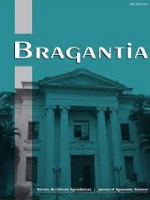
BRAGANTIA
Exploring Frontiers in Agricultural and Biological SciencesBRAGANTIA, published by the Instituto Agronômico, is a distinguished open access journal that has been a vital resource since its inception in 1977. With an ISSN of 0006-8705 and E-ISSN 1678-4499, this journal is recognized for its contributions to the field of Agricultural and Biological Sciences, where it currently holds a respectable Q2 ranking as of 2023. Additionally, BRAGANTIA is indexed in various databases, supporting its impact within Materials Science (Q3 ranking). Positioned in Brazil, the journal promotes the dissemination of high-quality research, aiming to bridge the gap between academia and practical applications in agricultural innovation and sustainability. Researchers, professionals, and students looking to keep abreast of recent advancements and their implications will find BRAGANTIA to be an indispensable platform for sharing and accessing vital agricultural knowledge.
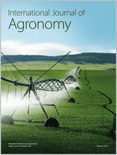
International Journal of Agronomy
Exploring the Frontiers of Agronomy and Crop ScienceIntroducing the International Journal of Agronomy, an influential publication in the field of agricultural sciences, established by HINDAWI LTD. With an impact factor that reflects its relevance and quality, this journal has been an essential resource for researchers and professionals since its shift to Open Access in 2009, facilitating widespread dissemination of knowledge. Based in the United States, the journal has achieved notable recognition within the academic community, currently ranked in the Q2 quartile among Agronomy and Crop Science, with an impressive Scopus Rank of #139 out of 406 in its category, representing the top 65th percentile. Spanning from 2013 to 2024, it aims to advance the understanding and innovation in agronomy through its rigorous peer-reviewed research articles, reviews, and case studies. With a commitment to enhancing global agricultural practices and sustainability, the International Journal of Agronomy stands as a vital platform for sharing cutting-edge findings that ultimately contribute to the advancement of the agronomic sciences.

INDIAN JOURNAL OF AGRICULTURAL SCIENCES
Cultivating knowledge for a thriving agricultural community.Welcome to the Indian Journal of Agricultural Sciences, a vital resource for researchers and professionals in the field of agricultural sciences, published by the esteemed Indian Council of Agricultural Research. Established in 1974, this journal aims to disseminate high-quality research and developments in agronomy and crop science, facilitating knowledge exchange and advancement within the agricultural community. Though currently classified in the Q4 category according to 2023 data, it provides an essential platform for publication, contributing valuable insights towards sustainable agricultural practices. With an ISSN of 0019-5022 and an E-ISSN of 2394-3319, the journal houses important research that spans decades of convergence and collaboration, promoting innovation in agriculture across India and beyond. As an open access platform, it invites contributions that reflect a wide array of agricultural disciplines to foster sustainable food systems that address the challenges of food security. Join the network of scholars and practitioners by sharing your research and engaging with the profound work being done in this transformative field.

Revista de Ciencias Agricolas
Cultivating Knowledge for Sustainable FuturesRevista de Ciencias Agricolas, published by UNIV NARINO, is a prominent open-access journal dedicated to advancing the field of agricultural sciences. Since its inception in 1969, this journal has been an invaluable resource for researchers, professionals, and students alike, focusing on a wide array of topics that include sustainable farming practices, agricultural technology, and rural development. With the ISSN 0120-0135 and the E-ISSN 2256-2273, the Revista de Ciencias Agricolas ensures broad accessibility to its research articles, facilitating a wider dissemination of knowledge within the agricultural community. Situated in San Juan Pasto, Nariño, Colombia, the journal is committed to providing high-quality content that addresses both local and global agricultural challenges, thereby contributing to the enhancement of food security and livelihoods across diverse populations. The journal's inclusive approach not only fosters academic discourse but also encourages innovative solutions within the agricultural sector, making it an essential platform for knowledge exchange in this vital area of study.

International Journal of Plant Production
Empowering global food security with cutting-edge plant science.International Journal of Plant Production, published by SPRINGER in Switzerland, serves as a leading platform for the dissemination of innovative research in the fields of Agronomy, Crop Science, and Plant Science. With an ISSN of 1735-6814 and an E-ISSN of 1735-8043, this journal has maintained its reputation by achieving a Q2 quartile ranking in both categories as of 2023, alongside notable Scopus rankings placing it in the top quartiles of its fields (Rank #105/516 and Rank #88/406, respectively). The journal's scope encompasses a wide array of topics vital to sustainable agriculture and plant production systems, making it a critical resource for researchers, professionals, and students striving for advancements in these disciplines. By fostering open scientific dialogue and supporting cutting-edge research, the International Journal of Plant Production is committed to contributing to the resolution of global food security challenges, enhancing agricultural practices, and promoting ecological sustainability.
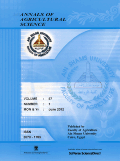
ANNALS OF AGRICULTURAL SCIENCES
Transforming Agricultural Science into Practical SolutionsANNALS OF AGRICULTURAL SCIENCES, published by Elsevier, stands as a leading open access journal dedicated to the multifaceted field of agricultural sciences. Since its inception in 2011, this journal has served as a pivotal platform for the dissemination of high-quality research, covering areas such as agronomy, animal science, horticulture, food science, plant science, and soil science. With an impressive Q1 ranking across multiple disciplines and notable positions in Scopus Ranks—including #6 in Animal Science and Zoology and #3 in Horticulture—this journal is recognized globally for its significant contribution to advancing agricultural innovations. The journal caters to a diverse audience of researchers, professionals, and students, providing them with open access to cutting-edge studies that address critical issues in agricultural productivity and sustainability. Its commitment to high-impact research ensures that articles contribute meaningfully to the scientific community, fostering advancements in agricultural practices and policies.

REVISTA DE LA FACULTAD DE CIENCIAS AGRARIAS
Connecting Scholars to Transform Agricultural Practices.REVISTA DE LA FACULTAD DE CIENCIAS AGRARIAS is an esteemed academic journal published by UNIV NACIONAL CUYO, FAC CIENCIAS AGRARIAS, located in Chacras de Coria, Mendoza, Argentina. As a pivotal publication in the fields of Agronomy and Plant Science, it has achieved a commendable Q2 ranking in both categories, indicating its relevance and impact within the scientific community. Since its establishment as an Open Access journal in 2007, it has facilitated the dissemination of crucial research, fostering collaboration and innovation among researchers, professionals, and students alike. The journal's converged years from 2008 to 2024 allow it to present contemporary advancements and discussions related to agricultural practices and plant sciences. With a strong commitment to quality and accessibility, REVISTA DE LA FACULTAD DE CIENCIAS AGRARIAS provides a valuable platform for those engaged in the crucial exploration of sustainable agricultural methodologies and plant innovations.
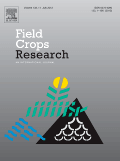
FIELD CROPS RESEARCH
Pioneering Discoveries in Agronomy and Soil ScienceFIELD CROPS RESEARCH is a premier academic journal published by Elsevier, dedicated to advancing knowledge in the fields of Agronomy and Crop Science as well as Soil Science. Now in its 46th year of publication, this esteemed journal has established itself as a leading resource, holding a prestigious Q1 ranking in both the Agronomy and Soil Science categories, with a remarkable blend of rigorous peer-reviewed research and innovative findings. With a Scopus ranking of #27/406 in Agronomy and #20/159 in Soil Science, and a notable 93rd and 87th percentile respectively, FIELD CROPS RESEARCH plays a vital role in informing practices that drive sustainable agriculture and optimize crop production. Although not an open access journal, it remains highly accessible to the global research community and offers critical insights that influence policy and agricultural practices worldwide. Researchers, professionals, and students are encouraged to delve into this journal, as it continues to shape the future of field crop research through impactful studies and comprehensive reviews.
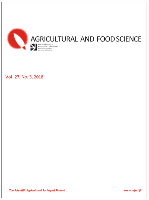
AGRICULTURAL AND FOOD SCIENCE
Transforming agricultural practices through rigorous science.AGRICULTURAL AND FOOD SCIENCE is a prestigious journal published by the SCIENTIFIC AGRICULTURAL SOCIETY OF FINLAND, dedicated to advancing knowledge in the fields of agricultural and food sciences. With an ISSN of 1459-6067 and E-ISSN of 1795-1895, this open-access journal has been providing valuable insights and research findings since its inception in 2002. As of 2023, it holds a Q3 ranking in Food Science and is positioned at the 46th percentile within its Scopus category, ranking 210 out of 389 journals in Agricultural and Biological Sciences – Food Science. The journal features contributions from a global network of researchers, covering various topics including sustainable agricultural practices, food safety, and innovative food technologies. Based in Finland, the journal serves as an essential platform for scholars, professionals, and students who are committed to enhancing food security and agricultural productivity through rigorous scientific research. The convergence of interdisciplinary studies from 2004 to 2024 marks a critical evolution in the scope of agricultural and food research, making this journal a vital resource for anyone involved in these dynamic fields.
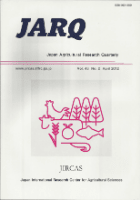
JARQ-JAPAN AGRICULTURAL RESEARCH QUARTERLY
Exploring the Frontiers of Agronomy and EcologyJARQ - Japan Agricultural Research Quarterly serves as a pivotal platform in the field of agricultural sciences, published by the esteemed Japan International Research Center for Agricultural Sciences. Established in 1973, this journal has a rich history and plays a critical role in disseminating significant research findings relevant to agronomy, crop science, animal science, ecology, and biotechnology. Despite its ranking in the lower quartiles, with impressive coverage from 1973 to 2024, it continues to attract contributions that enhance agricultural strategies and practices in Japan and beyond. The journal facilitates discussions that are essential for fostering innovation in agricultural methodologies and environmental sustainability. Accessible to a diverse audience, including researchers, academics, and practitioners, JARQ emphasizes the importance of advancing agricultural research and its implications for food security and ecological balance.